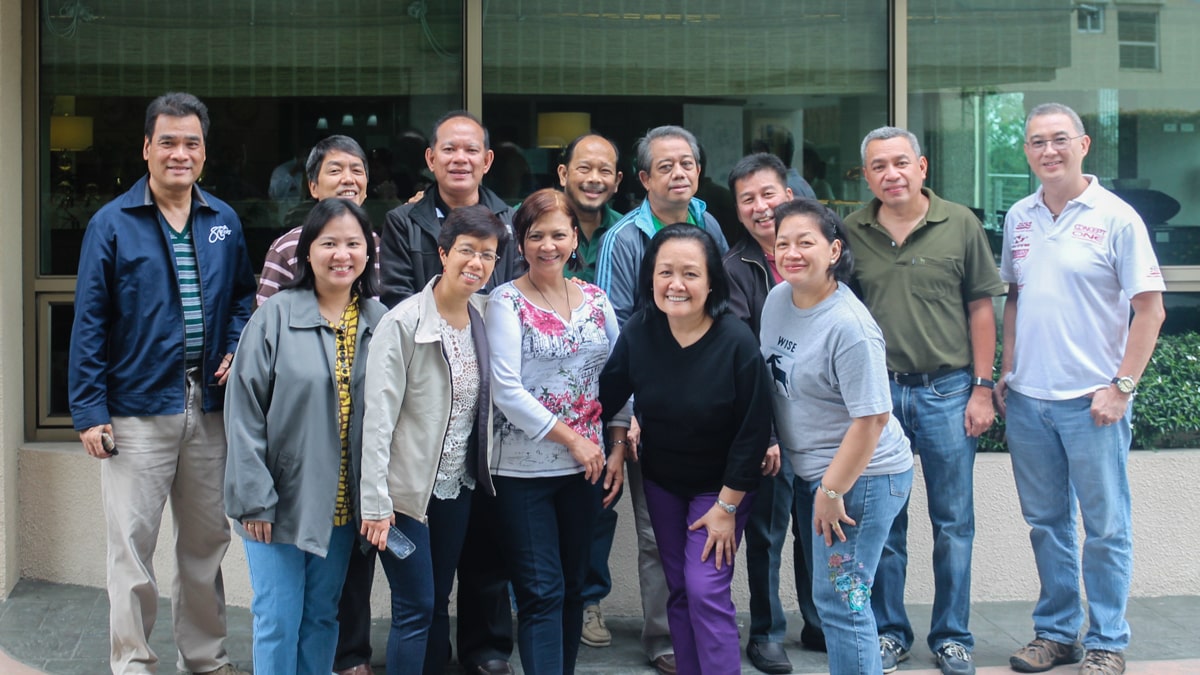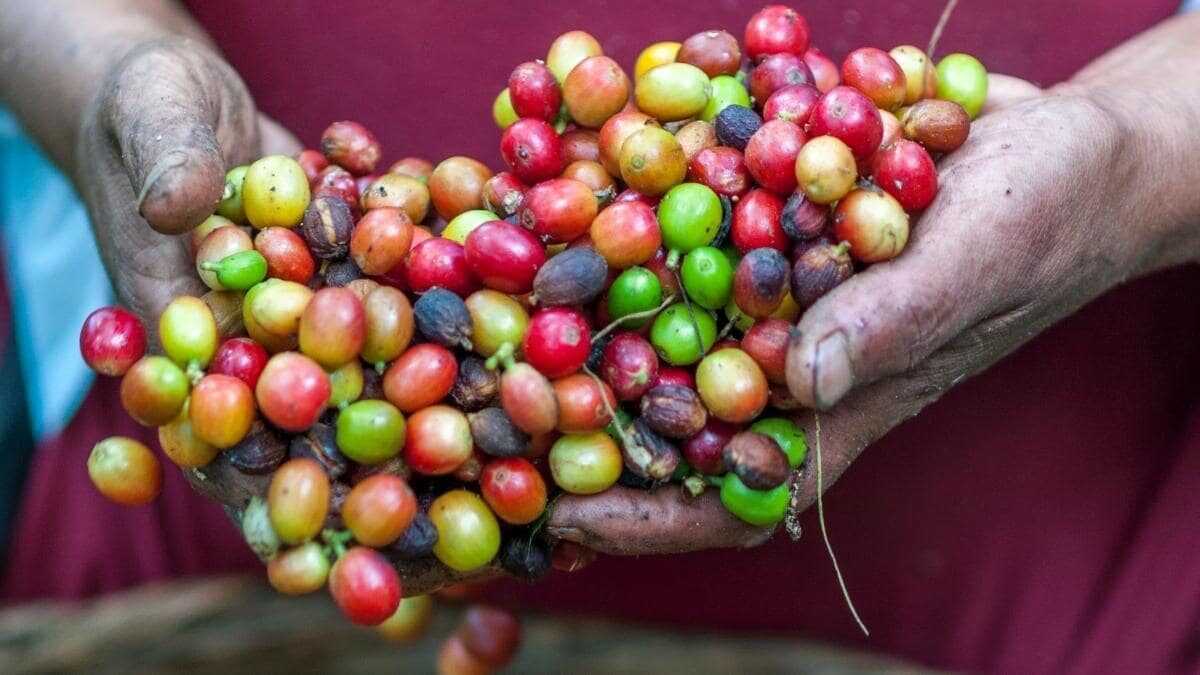
From Receiving Instruction to Replicating Impact: FOCIG, CCTA, and GTP
November 10, 2021
Gladys Güitz – Finding God’s treasures in the garbage dump
November 23, 2021Constructive Cross Border Giving Around the World
As we draw closer to Christ and grow in generosity, our heart of compassion enlarges for addressing big needs around the world. People cry for help, and we want to respond. But often our aid creates unhealthy dependency on external support. What if there is a way to build up local disciples to address the needs in an ongoing way? I think there is, and I get inspiration from Acts 16:9-10.
In that text, Paul saw a vision of a man “standing and begging” and saying, “come over… and help us.” The fact that the man was standing and begging reveals he was in a posture of service, not helplessness. From this text and my interaction with national workers around the world, I want to suggest two approaches to cross-border giving that can “come and help” in a manner that reaps constructive results.
Support “Coffee Bean” Strategies
Let me explain with a story. At a break in GTP meetings in Central America in November 2020, I toured Finca Filadelphia, a coffee plantation that has operated for over a century in Antigua, Guatemala. There, I learned a powerful lesson, which I’ve shared widely ever since. It’s the secret to sustainability.
“Did you know that every coffee bean has two seeds?” the guide said. “One to share and one to sow!” He continued, “If we shared or consumed both seeds, since the plants take so long to produce fruit, we’d have no more coffee.” With a smile, he added, “If we sowed both, we would not enjoy any coffee, and that’s not good either.”
So, a “coffee bean” strategy is one that uses about half the funding for program and half to rally new partnership. When a ministry overseas seeks $20,000, don’t send the money if 100% of the funds will be spent on program. Once they use up the funds, they will call for further outside support. Your gift leaves them no better off in the long run.
Instead, suggest that the ministry allocates about 50% or $10,000 for program and 50% or $10,000 for partnership work to raise local funds. This way, once they deplete the $20,000, rather than find themselves empty, they will be enriched with local giving. You can encourage healthy growth by asking them to report both program and partnership metrics.
Make Gifts that “Teach People to Fish”
Here, of course, I aim to bring to your mind the saying, “Give a man a fish and feed him for a day. Teach him how to fish and feed him for a lifetime.” With this approach, I urge you to make gifts that strengthen God’s workers and grow local capacity, rather than merely funding projects with 100% of the outside aid. Gifts like this become gifts that keep on giving. But how?
Make sure your gift builds up local stewards and bolsters ministries by asking them to demonstrate compliance with biblical standards, similar to the Seven Standards of Responsible Stewardship of ECFA for ministries in the USA. At GTP, we call them “peer accountability groups” or PAGs. We have helped set up PAGs in eight countries and counting. Find a list here.
PAGs foster local sustainable ministry by coaching stewards to position ministries for flourishing by following standards linked to fundraising, administration, and governance. If the ministry you support works in a country with a PAG, advise them to join to help them build trust and capacity. If not, let us know. GTP may be able to aid them in starting a PAG there.
In addition to teaching stewards and expecting the ministries they serve to follow standards, designate all or a portion of your $20,000 gift as a matching gift. This requires the ministry to put into practice what they learn and raise local funds. You may offer additional gifts over multiple years to help them build a healthy base of local, regional, and national support.
The Choice is Yours!
Next time you hear cries for help from across international borders around the world, don’t just send money. Handouts create dependencies! Instead, make the choice to empower disciples to do the program and partnership work necessary for local sustainability.
Support “coffee bean” strategies that simultaneously grow program and partnership. And make gifts that “teach people to fish” or that build up stewards and teach them to follow standards that honor God and position them to flourish.
––––
This article was originally posted on the Christian Leadership Alliance Blog on 22 November 2021.
Generosidad que cruza fronteras en todo el mundo
Mientras nos acercamos más a Cristo y nuestra generosidad aumenta, nuestro corazón de compasión se agranda para abordar las grandes necesidades en todo el mundo. Las personas hacen llamadas de auxilio, y queremos responder. Pero a menudo nuestro auxilio crea dependencia negativa en un apoyo externo. ¿Y si hay una manera de construir discípulos locales para abordar las necesidades de manera continua? Yo creo que la hay, y me inspiro de Hechos 16:9-10.
En ese texto, Pablo tuvo una visión de un hombre “puesto de pie, rogando” y diciendo “pasa a Macedonia y ayúdanos.” El hecho de que el hombre estaba puesto de pie y rogando revela que estaba en una postura de servicio, no de desamparo. De este texto y de mi interacción con trabajadores nacionales en todo el mundo, quiero sugerir dos alcances para una generosidad que cruza fronteras que puede “pasar y ayudar” de una manera que cosecha resultados constructivos.
Apoyar las estrategias de “grano de café”
Déjeme explicar con una historia. En un descanso de las reuniones de GTP en Centroamérica en noviembre de 2020, visité la Finca Filadelfia, una plantación de café que ha operado por más de un siglo en Antigua, Guatemala. Ahí, aprendí una lección poderosa, la cual he compartido ampliamente desde entonces. Es el secreto para la sostenibilidad.
“¿Sabían que cada grano de café tiene dos semillas?” dijo el guía. “¡Una para compartir y otra para sembrar!” Continuó, “si compartimos o consumimos ambas semillas, ya que las plantas toman mucho tiempo para producir fruto, no tendríamos más café.” Con una sonrisa agregó, “Si sembráramos ambas, no disfrutaríamos de ningún café, y eso no es bueno tampoco.”
Así que, una estrategia de “grano de café” es una que usa aproximadamente la mitad de los fondos para el programa y la otra mitad para conseguir nuevas asociaciones. Cuando un ministerio en el exterior busca $20,000, no envíe el dinero si el 100% de los fondos se usarán en el programa. Una vez que agoten los fondos, pedirán más ayuda externa. Su donación no los dejará en una mejor situación a largo plazo.
En su lugar, sugiera que el ministerio destine aproximadamente el 50% o $10,000 al programa y el otro 50% o $10,000 al trabajo de asociación para recaudar fondos locales. De esta forma, una vez agoten los $20,000, en lugar de encontrarse con las manos vacías, se enriquecerán con las donaciones locales. Puede fomentar el crecimiento saludable pidiéndoles que informen los parámetros del programa y asociación.
Haga donaciones que “le enseñen a las personas a pescar”
Aquí, claro, busco que venga a su mente el dicho “Dele un pez a un hombre y comerá un día; enséñele a pescar y comerá siempre”. Con este enfoque, lo insto a hacer donaciones que fortalezcan a los obreros de Dios y hagan crecer la capacidad local, en lugar de solamente financiar proyectos con el 100% del apoyo externo. Las donaciones como estas se convierten en donaciones que continúan dando. ¿Pero cómo?
Asegúrese que sus donaciones construyan mayordomos locales y refuerce ministerios pidiéndoles que demuestren cumplimiento con estándares bíblicos, similares a los Siete Estándares de Mayordomía Responsable de ECFA para ministerios en Estados Unidos. En GTP, los llamamos “grupos de rendición de cuentas” (PAG, por sus siglas en inglés). Hemos ayudado a crear PAGs en ocho países y contando. Encuentre una lista aquí.
Los PAGs fomentan ministerios sostenibles locales al orientar mayordomos a posicionar ministerios para prosperar al seguir estándares vinculados a la recaudación de fondos, administración y gobernación. Si el ministerio al que usted apoya trabaja en un país con un PAG, aconséjeles unirse a él para ayudarles a construir confianza y capacidad. Sino, háganos saber. GTP podría ayudarles a iniciar un PAG allí.
Además de enseñar a los mayordomos y esperar que los ministerios en los que sirven sigan estándares, designe todo o una porción de su donación de $20,000 como una donación de contrapartida. Esto requiere que el ministerio ponga en práctica lo que han aprendido y que recauden fondos locales. Usted puede ofrecer donaciones adicionales a lo largo de varios años para ayudarles a construir una base saludable de apoyo local, regional y nacional.
¡La decisión es suya!
La próxima vez que escuche llamados de auxilio desde el otro lado de las fronteras del mundo, no sólo envíe dinero. ¡Las donaciones crean dependencia! En su lugar, tome la decisión de capacitar discípulos para que realicen el trabajo de programa y de asociación necesario para una sostenibilidad local.
Apoye las estrategias de “grano de café” que simultáneamente hacen crecer el programa y la asociación. Y haga donaciones que “enseñen a pescar” o que construyan mayordomos y enséñeles a seguir estándares que honran a Dios y los posicionan para prosperar.
––––
Este artículo fue publicado originalmente en el blog de Christian Leadership Alliance el 22 de noviembre de 2021.




